Featured 2

Lilit Sargsyan managed to save two “sacred” possessions: a family-woven carpet and her great-grandmother’s silver earrings | Lucy Martirosyan
EU’s ‘concern’ for ethnic Armenians comes after it signed multi-billion-euro deal with country that persecuted them
Before fleeing Nagorno-Karabakh, Lilit Sargsyan managed to save two "sacred" heirlooms: a family-woven carpet, now ripped with age, and earrings crafted with silver coins from her great grandmother's taraz, a traditional Armenian headpiece.
The 36-year-old single mother and school teacher was among the 150,000 indigenous Armenians forcibly displaced from their homeland in late September, when Azerbaijan violated a ceasefire brokered in 2020 to launch a military offensive on the territory, which is internationally recognised as part of its borders.
"The first thing that affected me mentally was that road, which seemed like a death march," Sargsyan told openDemocracy.
"It was like burying Artsakh [the Armenian name for Nagorno-Karabakh]."
Four months after the attack on Nagorno-Karabakh, it has been reported that barely two dozen ethnic Armenians remain in the territory, which is now under Azerbaijani control - prompting accusations of ethnic cleansing.
openDemocracy spoke with European and Armenian foreign policy experts and former Nagorno-Karabakh officials who believe international actors including the European Union could have done more to prevent Azerbaijan from exacerbating the humanitarian crisis in the region.
They pointed to two multi-billion-euro energy 'memorandum of understanding' (MoU) agreements the EU and its member states signed with oil-rich Azerbaijan in 2022 as part of Europe's efforts to reduce reliance on Russian gas following its war on Ukraine.
Such agreements, the experts and officials suggested, could have been used to impose sanctions or other "red lines" to hold Baku responsible for its repeated violations of international agreements and humanitarian law.
Instead, they said, the deals have helped to embolden Azerbaijan's autocratic president, Ilham Aliyev, who has in recent months made further territorial threats to Armenia's land sovereignty and refused to resume peace talks despite the urging of the EU, which has led mediations since Russia invaded Ukraine.
Lilit Sargsyan, forcibly displaced mum from Nagorno-Karabakh
Nagorno-Karabakh's ethnic Armenians, who have been largely forgotten in the geopolitical chess match of recent years, have been left doubting whether proper international mechanisms will ever be put in place to ensure their safe return home.
Speaking to openDemocracy, Sargsyan pointed out that most countries do not want to "worsen their relations with Azerbaijan in order to save Artsakh".
"For the people of Artsakh," she said, "humanity as such does not exist at all."
'Traded EU values for gas'
European Commission president Ursula von der Leyen branded Azerbaijan a "trustworthy, reliable partner" on 18 July 2022, when she signed a commitment to double the country's annual gas exports to Europe by 2027.
Azerbaijan exported more than €21bn (around £18m) of gas to countries in the EU between January 2022 and the end of November 2023, according to Eurostat data obtained by openDemocracy.
Armenia's Human Rights Ombudsman's office made more than 130 public statements warning of threats to ethnic Armenians caused by Azerbaijani military actions in the 18 months before the MoU was signed.
Estonian MEP Marina Kaljurand, who heads the Parliament's delegation for relations with the South Caucasus, told openDemocracy that the commission had "traded EU values for gas".
Less than two months after the MoU was agreed, Azerbaijan attacked Armenia's southern border. More than 200 Armenian troops and 80 Azerbaijani troops were killed or reported missing in the attack. As a result of this aggression, and two other invasions in 2021, Azerbaijan currently occupies more than 150 square kilometres of Armenia's territory, according to the latter's Ministry of Foreign Affairs.
A second, separate energy MoU was brokered between Azerbaijan and two EU member states and one aspiring member state on 17 December 2022, five days after Azerbaijani actors first blocked the Lachin corridor, the only road linking Nagorno-Karabakh to Armenia. The blockade lasted nine months - right up until the military attack and forced displacement of September 2023 - and caused a grave humanitarian crisis by restricting the flow of goods into the territory.
As food, fuel and medical supplies in Nagorno-Karabakh dwindled, Romania and Hungary, as well as EU candidate Georgia, pledged to invest $2.4bn (about £1.9bn) to construct an electric cable from Azerbaijan to Europe.
"These countries signed a billion-dollar deal with Azerbaijan, but the Nagorno-Karabakh people were already suffering," said Artak Beglaryan, a former adviser to the Artsakh Republic, Nagorno-Karabakh's self-proclaimed state.
Though the European Commission was not a party to the electric cable MoU, and has not yet agreed to contribute any central funding to the project, von der Leyen met with the leaders of all four countries in Bucharest as they signed it.
A spokesperson for the commission, Ana Pisonero, told openDemocracy: "No EU funding has so far been allocated to the construction of the Black Sea electricity cable between Georgia and Romania, as studies to determine economic and technical feasibility are still ongoing."
Still no sanctions on Azerbaijan
For some in the EU, unease around the bloc's ties with Azerbaijan increased after the forced displacement of ethnic Armenians in September. Shortly after, the European Parliament passed a resolution that said the situation amounted to ethnic cleansing and demanded a review of the gas agreement and the EU's relationship with Azerbaijan in general.
MEP Kaljurand, a co-author of the resolution, told openDemocracy that the humanitarian crisis inflicted in Nagorno-Karabakh by Azerbaijan's military attack and the blockade of the Lachin corridor before it is "not behaviour that we expect from [an EU] partner".
The parliamentary resolution also called for sanctions against Azerbaijani officials over human rights abuses, and questioned whether the country is repackaging Russian gas and exporting it to Europe, following Baku's separate energy agreement with Gazprom, a Kremlin-owned gas company, in 2022.
The European Commission's spokesperson for climate action and energy, Tim McPhie, refuted this, telling openDemocracy: "Our understanding is that Azerbaijan is importing up to one billion cubic metres of gas from Russia for its domestic consumption."
Iskra Kirova, the advocacy director for Europe and Central Asia at Human Rights Watch, described the gas MoU as a "failed opportunity" for the EU, claiming the bloc could have attached conditions, or "red lines", on human rights and rule of law to the agreement. Instead, she said, it gave Azerbaijan a "purely economic" deal despite concerns over Baku's human rights record.
The EU has replaced "a dependency on one hydrocarbon-fueled authoritarian regime by cultivating a relationship with another," Kirova added.
McPhie denied this, saying: "Over the past couple of years, the EU has steadily diversified its gas supplies... in 2023, Azerbaijan provided around 4% of the EU's total gas imports."
The parliamentary resolution passed on 5 October by 491 legislators to nine - but the EU is not required to act on it. Days earlier, Charles Michel, the president of the European Council, the EU's political executive branch with sanctioning power, had denied that the EU turned a blind eye to hostilities by Baku when signing the July 2022 MoU.
"Azerbaijan is a partner today, yes, it's a partner. That doesn't mean the relationship is simple," he said.
Aliyev visited Nagorno-Karabakh less than two weeks after the parliamentary resolution passed. There, he was filmed by state media walking over the Artsakh flag.
"We have returned to our lands, we have restored our territorial integrity, and at the same time, we have restored our dignity," he said in the clip, vowing to punish officials from the internationally unrecognised Nagorno-Karabakh state, who had been captured by Azerbaijani forces in September.
Tigran Balayan, Armenia's designate to the EU in Brussels, said: "It's exactly because of the deals with Azerbaijan that the EU is the best place to exert pressure on Azerbaijan to, first of all, pay the price for cheating, for lying, for not honouring all the commitments and written obligations of the ceasefire agreement and of international humanitarian law.
"Since Azerbaijan has positioned itself as a petrol station, it should be used as a petrol station. But as a petrol station for the needs of the EU and on the principles that the EU will set up."
But foreign policy and security expert Sossi Tatikyan told openDemocracy that, even if it wanted to, the EU would have struggled to sanction Azerbaijan in the aftermath of the forced displacement of Armenians from Nagorno-Karabakh.
There was no "consensus amongst its 27 member states" to do so, she explained. "One of the reasons was that some of its member states get gas from Azerbaijan."
Italy, Hungary, Greece and Bulgaria imported gas from the country in 2022.
The European Commission's lead spokesperson for foreign affairs and security policy, Peter Stano, told openDemocracy that "the EU does not compromise on its core principles and values" and that "human rights and the respect of the rule of law remain at the core of the European Union's relationship with Azerbaijan".
He added: "The EU believes that respect for basic rights is fundamental for stability and prosperity. For this reason, the EU continues to be engaged in all fora that allow it to raise its concerns with respect to human rights developments in Azerbaijan, including the annual EU-Azerbaijan Human Rights Dialogue.
"The EU continues to closely follow the situation on the ground regarding human rights."
Right of return?
The EU pledged to give €12m in humanitarian aid to Armenians from Nagorno Karabakh in the aftermath of last year's mass forced displacement. This money brings the total amount of aid it has given to people affected by the crisis in the territory to €32.9m since the 2020 war.
EU high representative Josep Borrell said the bloc has also "beefed up" its monitoring mission on the Armenian border amid Azerbaijan's ongoing territorial threats, which it has issued warnings to Azerbaijan over.
Azerbaijani leader Aliyev has demanded Yerevan open the so-called 'Zangezur corridor', which runs from Azerbaijan through Armenia to Azerbaijan's exclave of Nakhchivan. The autocratic leader has also repeatedly made irredentist claims that present-day Armenia is 'Western Azerbaijan'.
Speaking after a meeting of the Foreign Affairs Council last week, Borrell called Aliyev's threats "very concerning". He warned that "any violation of Armenia's territorial integrity will be unacceptable and will have severe consequences for our relations with Azerbaijan".
But the commission made no mention of those displaced from Nagorno-Karabakh. The EU's action on the safe return of families has so far been limited to a brief statement last year demanding Azerbaijan ensures their rights and security, including their right to return home.
Tatikyan told openDemocracy that the bloc must go further, suggesting an EU or UN-led international peacekeeping mission is required, as well as some self-governance of Armenians in Nagorno-Karabakh, and the withdrawal of Azerbaijani armed forces from the territory.
"The safe and dignified return [of ethnic Armenians to Nagorno-Karabakh] would be possible only if certain conditions are put in place," she said.
Such conditions would require either the consent of Azerbaijan or a United Nations Security Council resolution. The latter, Tatikyan added, would likely be vetoed by Russia due to its increasing alignment with Azerbaijan and complicity in the failure of peacekeeping.
In the meantime, ethnic Armenians remain displaced. Sargsyan, her child and her parents are living with a relative in Khachpar, an Armenian village that's mostly populated by refugees who have fled Nagorno-Karabakh over the past 30 years.
The family has been there since late September when, having survived Azerbaijan's nine-month besiegement, they found themselves trapped on the road to Armenia and surrounded by violence.
They fled days after Azerbaijan launched a full-scale military invasion of Nagorno-Karabakh that killed more than 200 soldiers and two dozen civilians, according to a Karabakh official. Azerbaijani forces allowed residents to leave the region only when local Armenian leaders agreed to disband the unrecognised state's defence forces.
As the mass exodus began, the area's only remaining fuel depot exploded, killing a further 200 people, including one of Sargsyan's neighbours who was queueing for petrol. The explosion prompted Sargsyan and her six-year-old daughter, ailing mother, father, relatives and neighbours to cram into three cars and try to escape quickly.
The roads were heavily congested, but after 36 hours they finally made it to Armenia's southern border, where security guards and aid workers told them they were "lucky" to have "arrived early". At least 70 people died of severe exhaustion, dehydration, starvation, or a lack of medical supplies while trying to flee the territory, according to Armenia's investigative committee.
Sargsyan recalls hearing screaming and seeing a lifeless woman crushed between two vehicles amid the panic to get out of Nagorno-Karabakh. It's an image that still keeps her up at night.
Since then, Sargsyan says she has found life in Armenia difficult. While she has so far received 250,000 drams from the Armenian government as part of a package for all forcibly displaced people, she says she is still struggling to get by without child support.
She barely makes ends meet despite working two teaching jobs to pay for physical therapy and rehabilitation classes for her six-year-old daughter, who has a fine-motor disability.
"At least in Artsakh, I received child support of 14,500 drams [roughly £27] per month, which is very little money, but significant for us," Sargsyan said. "Here, in Armenia, I can't receive it because I lack proper documents."
She wants one day to be able to return home to her village, Askeran - though she has little hope of this happening, calling the thought of ever living securely under Azerbaijani rule "a bit absurd".
"I love my city so much that I know every corner," Sargsyan said. "Now I have to make sure that I don't forget, and constantly remind my child so that she also doesn't forget."
From openDemocracy









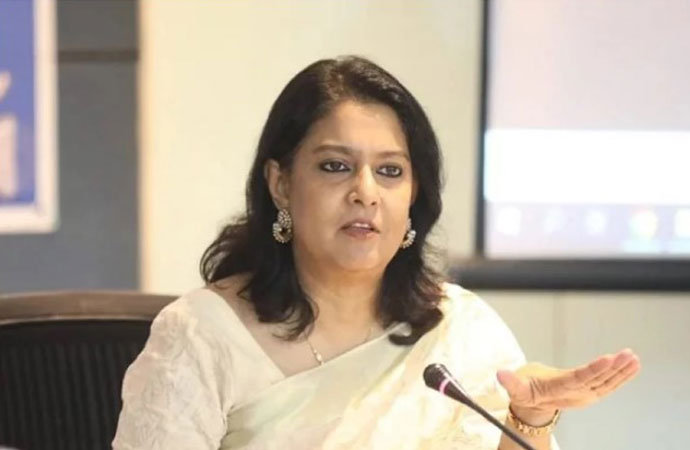
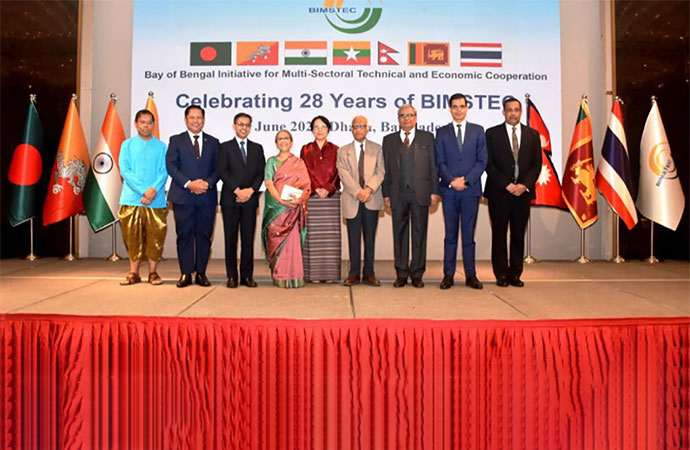











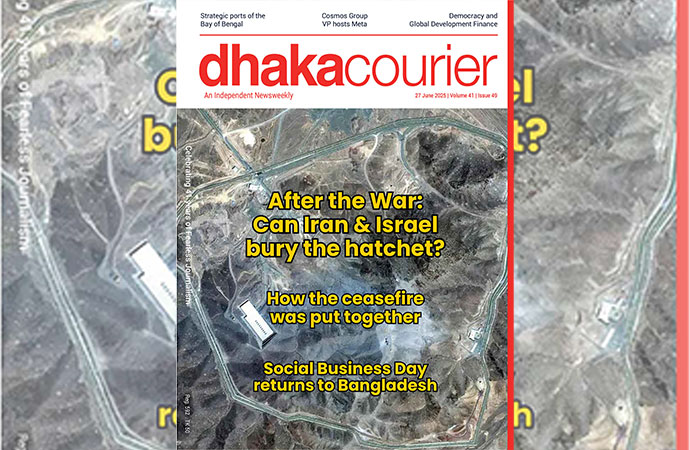
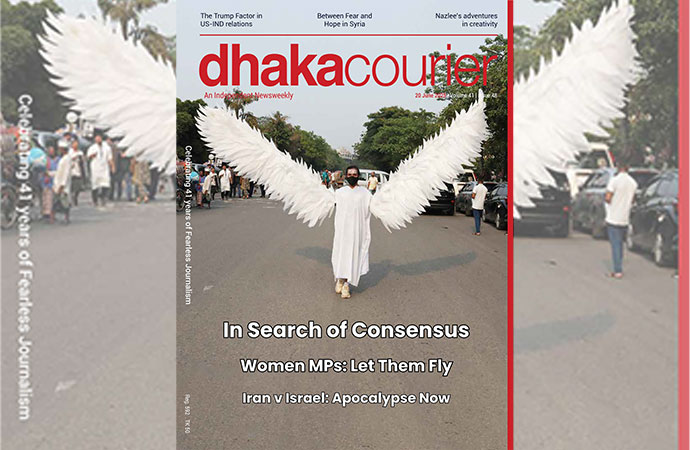
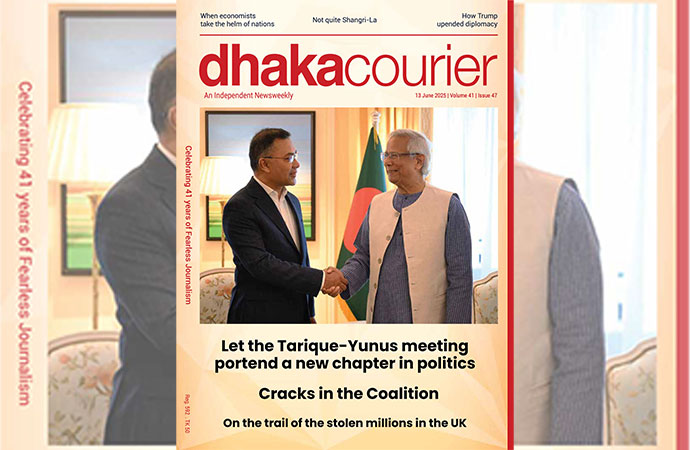
Leave a Comment
Recent Posts
The Northeastern Question
When secessionist movements sprang up across the Eastern European part ...
Trump’s Tariff: How far should ...
Will Bangladesh manage to get a last minute reprieve on its 'Trump tar ...
Rivers, Peaks, and Expressions – My Experience at th ..
What lies behind the alarming spike in violence agai ..
A Himalayan choice
Twenty Palestinians were killed at a food distributi ..